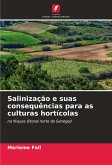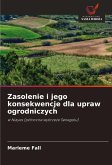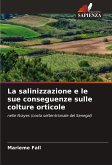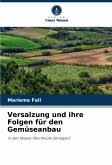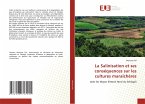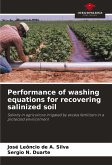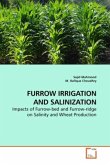The aim of this research is to gain a better understanding of the degradation of irrigation water by salinization, in the current context of Senegal. For more than three decades, Senegal has witnessed a continuous degradation of the land, with a consequent collapse in agricultural performance. The real problem facing Senegalese agriculture remains the pronounced loss of soil fertility and the quality of irrigation water.Studies carried out by the CILSS in November 2010 show that, of the 3,805,000 ha of arable land available to Senegal, some 2,400,000 ha are severely degraded, i.e. 63%. This soil loss is mainly due to the combined effects of factors such as the use of chemical fertilizers, slash-and-burn cultivation, massive deforestation, overloading with livestock, poor quality of irrigation water, but above all the decline and instability of rainfall, partly as a result of the decline in natural afforestation, with some 20,000 ha of forest lost every year.
Bitte wählen Sie Ihr Anliegen aus.
Rechnungen
Retourenschein anfordern
Bestellstatus
Storno


